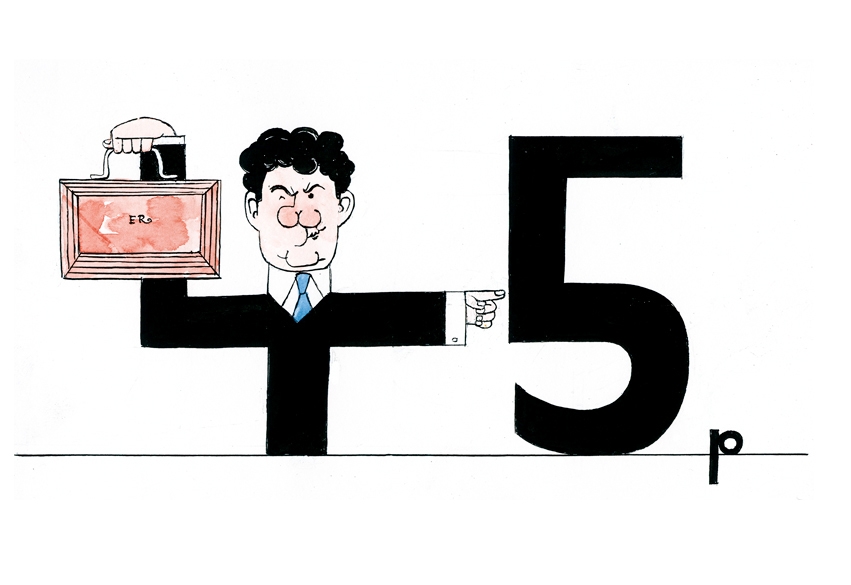Home
In the Budget, George Osborne, the Chancellor of the Exchequer, raised the threshold for workers to start paying income tax at standard rate to £9,205 and announced a gradual reduction of the rate for those earning more than £150,000 from 50 per cent. He imposed a higher level of stamp duty on houses costing more than £2 million and promised measures to make people pay. Child benefit would be withdrawn from fewer families. Tobacco and drink duties went up by 5 per cent above inflation. Taxpayers will each be sent annual details of the tax they pay and what it is spent on. The Office for Budget Responsibility had raised its expectations for growth in the economy a smidgeon, and the Chancellor expected to eliminate the national deficit by 2016-17. Most of the Budget provisions were made public before he made his Commons speech. A low daily dose of aspirin over a long period was said by researchers to protect against cancer.
•••
David Cameron, the Prime Minister, proposed private investment in road improvements, with tolls perhaps for new roads. China might buy some roads, commentators suggested. The government is to take over the Royal Mail pension fund, which would ease the way for privatisation, subject to approval by the European Union. A government scheme to underwrite loans for small businesses was joined by four big banks, though HSBC decided to rely on its own funds. The adult minimum wage will rise by 11p an hour to £6.19 from October, but rates for those 20 or under remain the same. Inflation fell to 3.4 per cent from 3.6 per cent (by the CPI) or to 3.7 per cent from 3.9 per cent (by the RPI). Bolton Wanderers’ Fabrice Muamba collapsed in a game against Tottenham and his heart stopped; the game was abandoned and he remained in intensive care.
•••
The Queen used an address to both Houses of Parliament, marking her Diamond Jubilee, to ‘rededicate myself to the service of our great country’. Restrictions on Sunday trading will be eased for the Olympic Games, and there were fears that changes would become permanent. Mark Thompson will retire as director-general of the BBC after the Olympic Games. Channel 4 outbid the BBC to show the Derby and the Grand National on television. Dr Rowan Williams announced his resignation as Archbishop of Canterbury at the end of the year, after which he will become Master of Magdalene College, Cambridge. ‘I would hope that my successor has the constitution of an ox and the skin of a rhinoceros,’ he said.
•••
Abroad
A car bomb in Aleppo killed two people, and two in Damascus killed 27. Machine-guns and rocket-propelled grenades were heard from the district of al-Mezze in Damascus. Demonstrations against the Syrian government continued. A co-ordinated series of bombs killed 38 in Iraq. President Hamid Karzai of Afghanistan, drawing attention to evidence that the massacre last week of 16 civilians could not have been the work of only one man; Staff Sgt Robert Bales had been taken back to the United States to face charges. Abdullah al-Senussi, the head of Libyan intelligence under Colonel Gaddafi, was arrested in Mauritania. Belarus executed two men convicted of carrying out a bomb attack last year on the Minsk metro that killed 15. Rioters in Ontario set fire to a lorry and television sets after celebrations for St Patrick’s Day.
•••
Three children and a teacher at a Jewish school in Toulouse were shot dead by a man on a black scooter, just as three French soldiers of North African origin had been in the same area in the days before. Police surrounded a suspect, Mohammed Merah, 24, a Frenchman of Algerian origin and a self-proclaimed al-Qa’eda jihadist. Cuban police arrested 36 members of the Ladies in White group, which calls for the end of political imprisonment, on their way to Mass on the eve of a visit by Pope Benedict XVI. Pope Shenouda III of the Copts, who had reigned since 1971, died aged 88 and was enthroned in state, sitting vested and crowned, before his burial.
•••
Saudi Arabia began exporting large amounts of oil to bring down the price. Apple said it would spend some of the $97.6 billion it had built up in cash. Dinesh Trivedi resigned as India’s Railway Minister after party anger at his raising fares by the equivalent of 0.38p a kilometre. St Kitts and Nevis, population 50,000, arranged with creditors to reduce its $1.1 billion debts. King George Tupou V of Tonga died, aged 63, having reigned since 2006; his brother became king. CSH






Comments